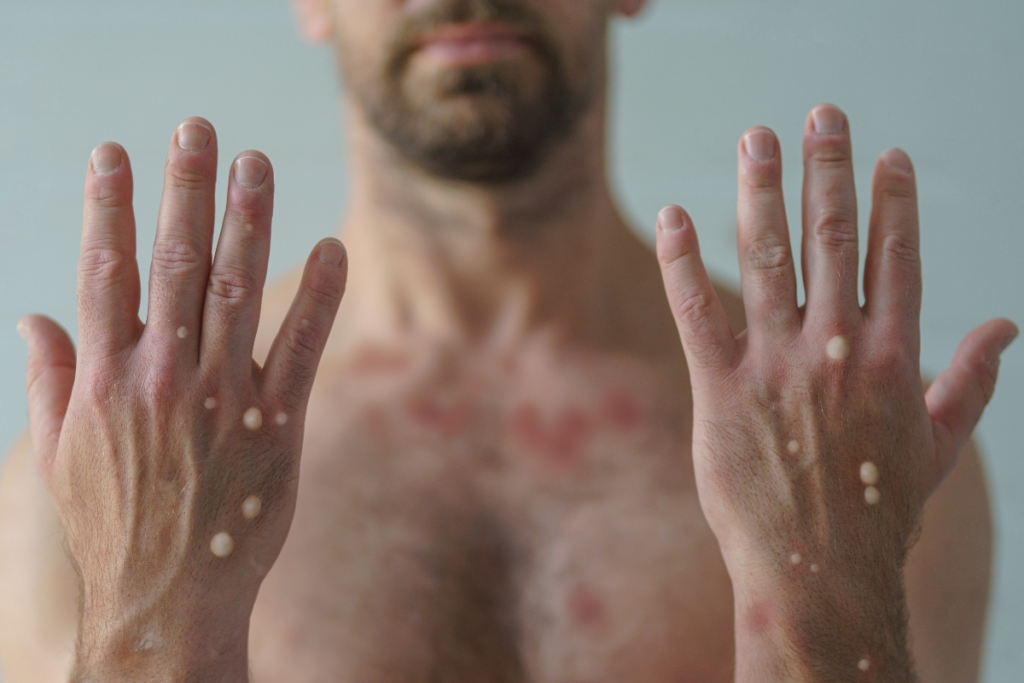Everything You Need to Know About Monkeypox

Everything You Need to Know About Monkeypox
What is Monkeypox?
Monkeypox is a viral infection caused by a virus from the Orthopoxvirus family. It was first identified in monkeys in 1958, and the first human case was reported in 1970 in the Democratic Republic of the Congo. While it is primarily found in Central and West Africa, it has shown an increased incidence in other regions in recent years.
Symptoms and Progression
Monkeypox typically presents with the following symptoms:
- Fever: Often one of the initial signs.
- Headache: Severe headaches are a common symptom.
- Muscle and Back Pain: Body aches and pain in the back can occur.
- Lymph Node Swelling: Swelling of lymph nodes, especially in the neck, armpits, and groin.
- Skin Rash: The rash usually begins with flat spots, progresses to raised bumps filled with fluid, and eventually forms crusts. The rash typically appears on the face, hands, feet, and genital area.
Symptoms usually start 7-14 days after exposure and can last 2-4 weeks.
Transmission Routes
Monkeypox can be transmitted from animals to humans through direct contact with infected animals, such as rodents or primates. Human-to-human transmission can occur through contact with skin lesions or bodily fluids of an infected person. In rare cases, respiratory droplets from an infected person can also spread the virus.
Diagnosis and Testing
Diagnosis is typically made through clinical evaluation and laboratory tests. Tests on blood samples, skin lesions, and other biological materials are used to confirm the presence of the virus.
Treatment and Management
There is no specific antiviral treatment for monkeypox. Management is generally supportive, aimed at relieving symptoms. This may include:
- Pain and Fever Control: Using pain relievers and fever reducers.
- Hydration: Ensuring adequate fluid intake to prevent dehydration.
- Skin Care: Maintaining good hygiene of skin lesions.
Prevention and Vaccination
Preventing monkeypox involves avoiding contact with infected animals and people. Good personal hygiene and protective equipment are also important. Vaccination against smallpox, which is related to monkeypox, may provide some level of protection against the disease.
Recent Developments and Global Spread
In recent years, there has been an increase in monkeypox cases and the emergence of new cases in various countries, raising public health concerns. International health organizations are monitoring the situation and encouraging global cooperation to manage and contain the disease.
Conclusion
While monkeypox is generally mild, it can lead to serious complications in some cases. Seeking medical attention when symptoms appear and following recommended precautions are crucial. Paying attention to the guidance of health professionals and authorities can help prevent the spread of the infection and mitigate health risks.



